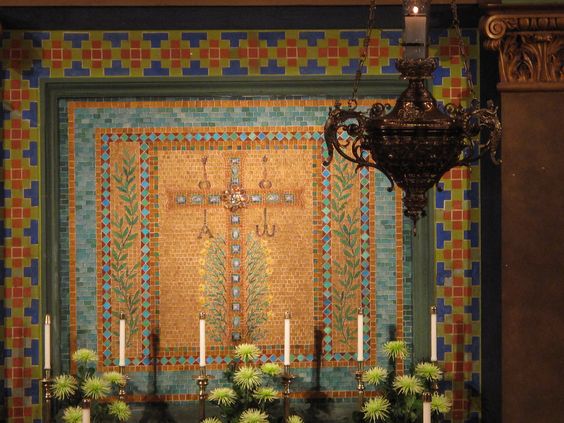Dear Hedrick:
Thus, they both agree that Christ remains in heaven, but Lutherans don't agree that he is restricted to it, which the verse doesn't actually say either. To pull out such conclusions from the verse will demand use of Reason against the common Christian beliefs of Calvin's time.
To say that Calvin's primary argument against Lutherans/Catholics is "scriptural" is incorrect, in that they do not differ on the scripture's own meaning in this case, only the implications to be drawn from that scripture. They both agree with the Ascension, but based on a materialist understanding of nature and Reason, Calvin concludes from the fact that Christ remains in heaven that Christ cannot be on earth at the same time. Of course, that conclusion is not what the verse actually says, only one understands that bilocation is not only conceivable but believed in for centuries and under nature's laws, possible.Actually his primary argument is Scriptural. He refers to the Ascension, where Jesus went to heaven, and Acts 3:21, which says that Jesus will remain in heaven until he comes again.
Thus, they both agree that Christ remains in heaven, but Lutherans don't agree that he is restricted to it, which the verse doesn't actually say either. To pull out such conclusions from the verse will demand use of Reason against the common Christian beliefs of Calvin's time.
This tangibility and absolute, inherent visibility is wayward logic, because according to John 20, Jesus passed through the wall. Was he at that moment while passing through the wall "tangible"? Also, to say that the vanished Christ was "visible" while in fact no human or animal could possibly see Him creates a "legal fiction", for back of a better term.He argues that even Christ’s glorified body is visible, Luke 24:39 and various other accounts of his post-resurrection appearance. While he appeared in a locked room, he always appeared in a tangible form. Calvin believes that the concept of Christ’s body as ubiquitous and invisible is a rejection of the resurrection of his flesh.
The two Lutherans here don't think I am oversimplifying their position.In fact he's oversimplifying the Lutheran position, but so are you, and in the same way.
Luther's Formula and Book of Concord were published in 1577-1580, long after Luther was able to review Calvin's ideas, including Calvinists' claims that their ideas were amenable. In the Concord, Luther wrote:The most detailed presentation in the Book of Concord agrees that Jesus has a resurrection body, but they maintain that it can be present in more than one way. The way in which it is present in communion is in a spiritual mode. I don't know whether Calvin wasn't aware of that when he wrote the Institutes or whether the Lutheran position was clarified afterwards.But as you know, he argued later that their positions were fairly close to each other.
Calvin did not believe of course that the faithless succeeded in consuming the Lord's body, while Luther said above that he did, as Luther believed that the eaten bread was directly that body.I reckon them all as belonging together (that is, as Sacramentarians and enthusiasts), for that is what they are who will not believe that the Lord's bread in the Supper is His true, natural body, which the godless or Judas receive orally as well as St. Peter and all the saints. Whoever, I say, will not believe this, will please let me alone and expect no fellowship from me. This is Final.
Last edited:
Upvote
0



